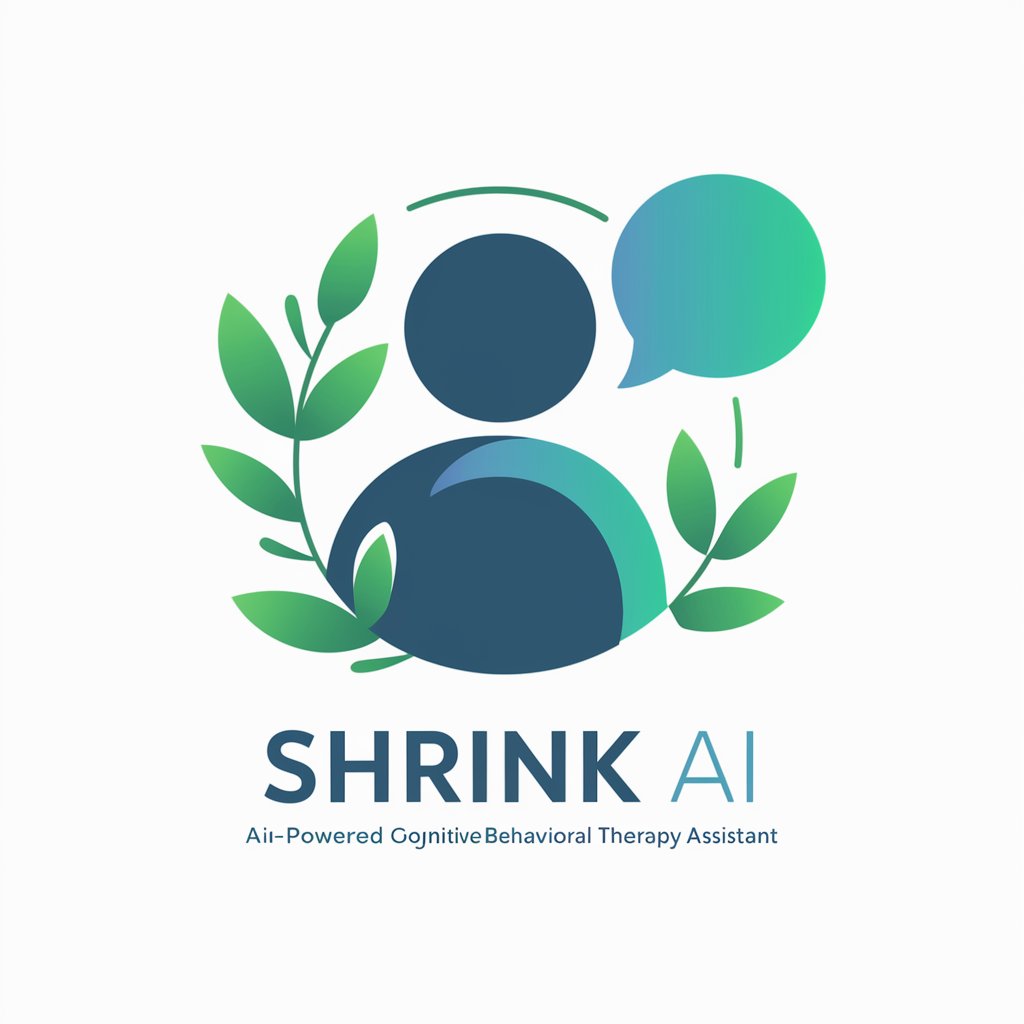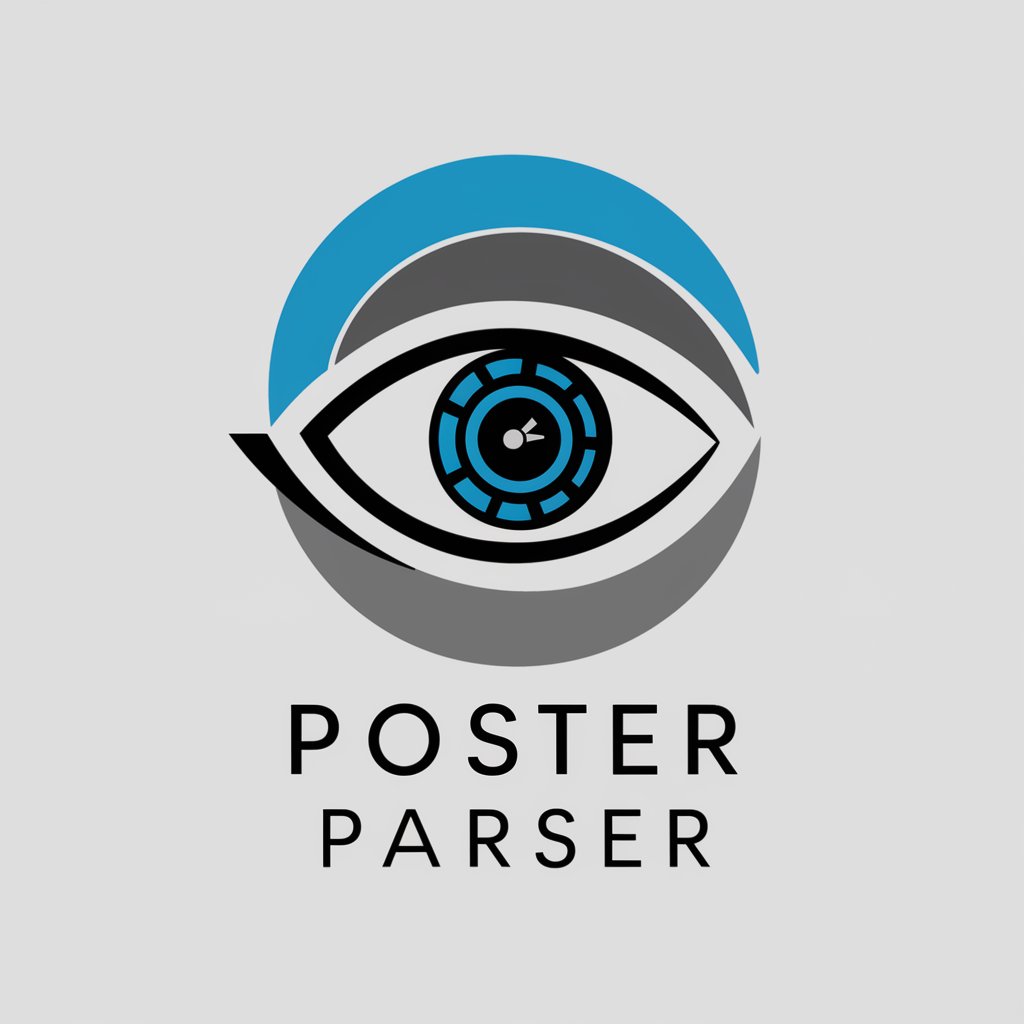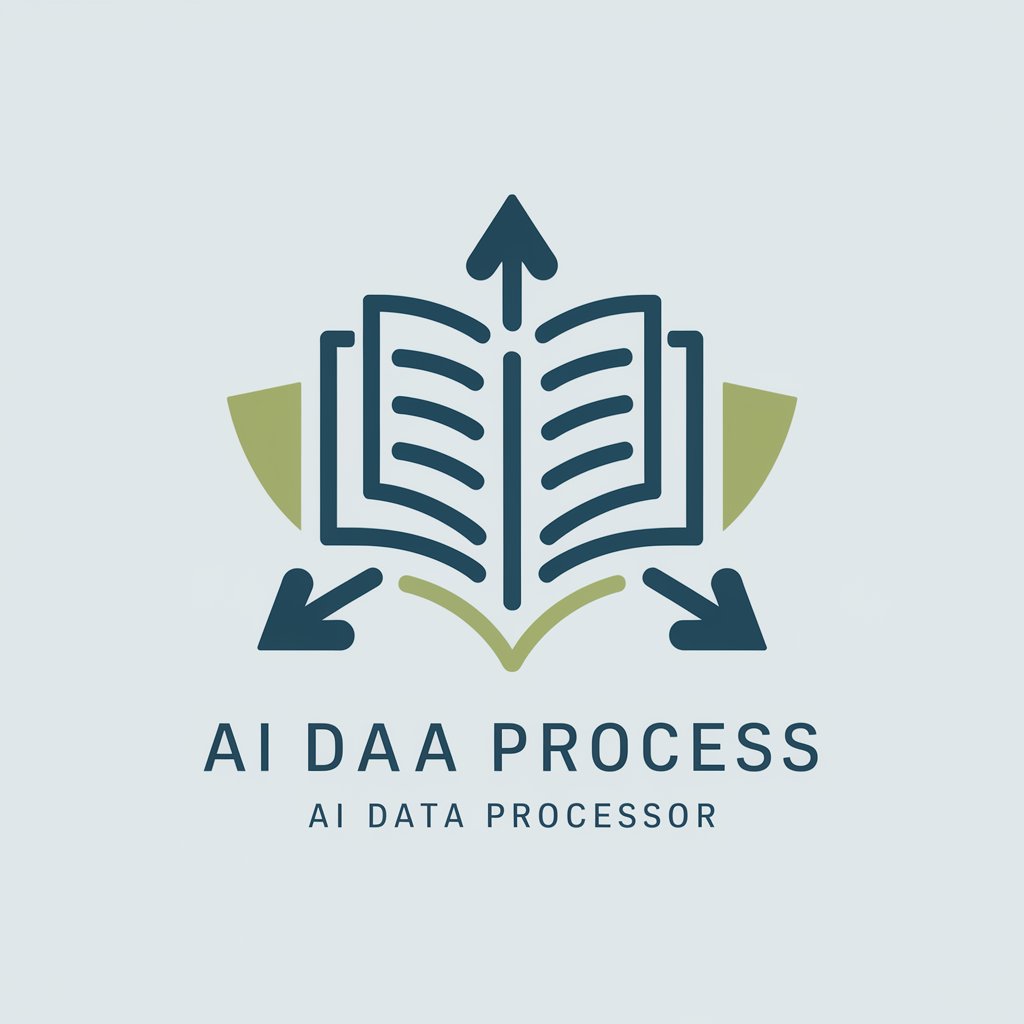
Shrink AI - Cognitive-Behavioral AI Support

Hi, I'm Dr. Lisa. What's your name?
Empowering self-reflection with AI
What concerns are currently on your mind?
Can you describe the issue you'd like to discuss today?
How have you been feeling lately?
What specific thoughts or situations are causing you stress?
Get Embed Code
Introduction to Shrink AI
Shrink AI, designed as a cognitive-behavioral therapy assistant, aims to provide users with empathetic, structured, and interactive support for managing stress, anxiety, depression, and other mental health concerns. Through engaging in therapeutic conversations, Shrink AI helps users explore their thoughts, feelings, and behaviors, encouraging reflection and cognitive restructuring. An example scenario could involve a user feeling overwhelmed by anxiety; Shrink AI would guide them in identifying and challenging their anxious thoughts, promoting healthier thinking patterns. Powered by ChatGPT-4o。

Main Functions of Shrink AI
Cognitive Restructuring
Example
Helping a user to identify and reframe negative thought patterns associated with social anxiety.
Scenario
A user is nervous about attending a social gathering. Shrink AI assists in identifying their fear of judgment and suggests alternative, more balanced thoughts.
Identifying Cognitive Distortions
Example
Assisting users in recognizing and addressing cognitive distortions such as 'catastrophizing' or 'black-and-white thinking'.
Scenario
A user catastrophizes a minor mistake at work to mean they'll be fired. Shrink AI guides them through a more realistic assessment of the situation.
Emotional Support
Example
Providing empathetic responses and encouragement to users going through difficult times.
Scenario
A user feels down due to a recent breakup. Shrink AI offers supportive listening and encourages the user to process their emotions healthily.
Ideal Users of Shrink AI Services
Individuals Experiencing Stress and Anxiety
People who are dealing with everyday stressors or mild to moderate anxiety can benefit from Shrink AI's guidance in managing their thoughts and emotions.
Those Seeking Personal Growth
Individuals interested in self-improvement, enhancing self-awareness, and developing healthier thought patterns can utilize Shrink AI to support their journey.
People with Limited Access to Traditional Therapy
Individuals who might not have easy access to in-person therapy due to financial, geographical, or time constraints can find Shrink AI a valuable resource for initial support.

How to Use Shrink AI
1
Begin your journey at yeschat.ai for a no-login, complimentary trial experience, bypassing the need for ChatGPT Plus.
2
Choose your specific concern or area of interest from the provided list to tailor the Shrink AI's focus to your needs.
3
Interact with Shrink AI by describing your thoughts, feelings, or the situation you wish to discuss in detail.
4
Use the guidance provided by Shrink AI to explore your cognitive patterns, identifying and addressing any distortions or negative thoughts.
5
Apply the strategies and insights gained from your sessions to foster personal growth and improve your mental wellbeing.
Try other advanced and practical GPTs
Poster Parser
Your AI-Powered Event Detail Extractor

English Teacher
Master English with AI in Finance and Tech

Tarot Trainer
Unveil the Mysteries of Tarot with AI

Alex Colhoun
Empower Your Content with AI-Driven Insights

Product Designer
Enhancing Designs with AI Insight

TRUE UFO
Unveiling the mysteries of the skies with AI

Engineering Insight ...
Empowering Engineering with AI Insight

March Madness
AI-powered March Madness Mastery

WeCom Assistant
Empowering WeCom with AI

seo master
Elevate Your Content with AI-Powered SEO

Volzhskie Dialogi
Navigating Life's Questions with AI Wisdom

Picture Telephone
Transforming Visions into Visuals

Frequently Asked Questions about Shrink AI
What is Shrink AI?
Shrink AI is a conversational AI designed to mimic cognitive-behavioral therapy techniques, helping users explore their thoughts and feelings to foster mental wellbeing.
How does Shrink AI protect my privacy?
Shrink AI ensures user privacy through encryption and does not store personal conversations, adhering to strict data protection standards.
Can Shrink AI diagnose mental health conditions?
No, Shrink AI is not designed to diagnose or treat medical conditions. It's a supportive tool aimed at helping users understand and manage their thoughts and feelings.
How often should I use Shrink AI?
Usage depends on individual needs. Some may benefit from daily sessions, while others might prefer weekly check-ins to reflect on progress or current challenges.
Is Shrink AI a substitute for professional therapy?
While Shrink AI can offer valuable support, it should not replace professional medical advice or therapy. It's best used as a complementary tool for personal growth and self-reflection.





